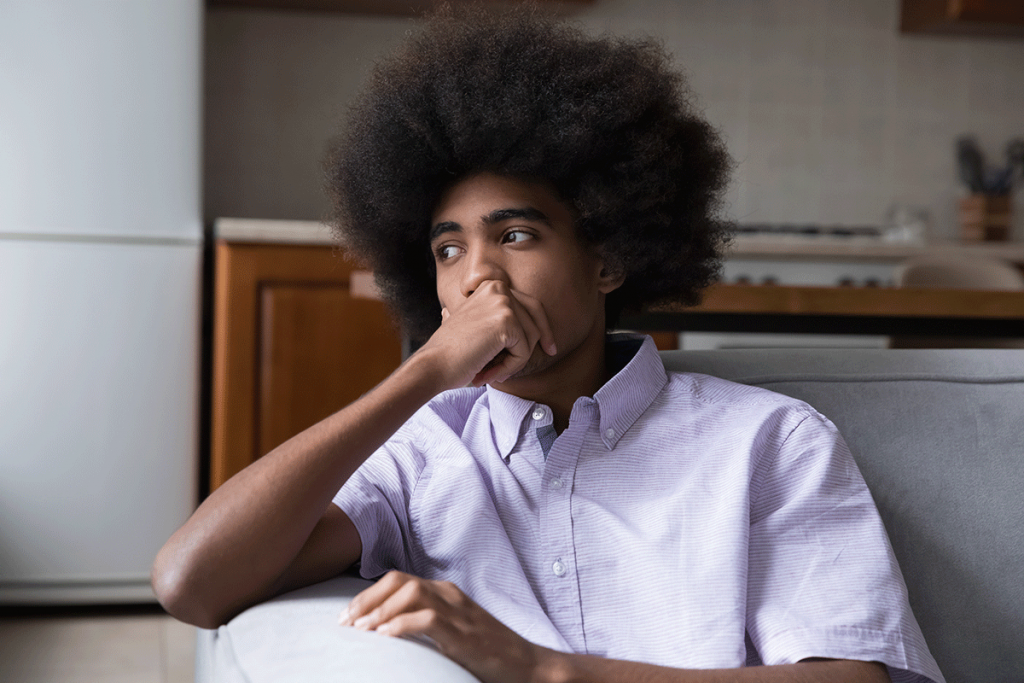Living through a traumatic event can be hard on anyone, but it can be even more difficult for teens. The feelings that can arise after the experience, sometimes without notice, are distressing and confusing. Post-traumatic stress disorder (PTSD) can affect anyone, but thankfully, treatment can be effective. Teen PTSD treatment might include talk therapy and/or medication.
What Causes PTSD?
Not everyone who experiences a traumatic event will develop PTSD, and it is not the only trauma-related mental health condition. PTSD is a specific condition with a certain set of symptoms. It can be caused by directly experiencing, witnessing, or learning about a traumatic event happening to a close friend or relative. Traumatic events can include:
- Physical or sexual abuse
- Being in a serious accident
- Natural disasters, like hurricanes or earthquakes
- War or combat
- Witnessing violence or death
- Terrorist attacks
These are just a few examples of traumatic events that can lead to PTSD. It is important to note that everyone reacts differently to trauma and may experience different symptoms. Some individuals may develop PTSD immediately after the event, while others may not experience symptoms until months or even years later.
Unique Circumstances for Adolescents
While PTSD can affect anyone, teens may face unique challenges when dealing with this condition. Adolescence is already a time of significant physical, emotional, and social changes, so adding the burden of PTSD on top of it can be overwhelming.
- Teens may feel like they are alone in their experiences and have trouble opening up to others about their trauma.
- They may also struggle with feelings of guilt or shame for not being able to handle the situation better.
- It is common for teenagers to try to avoid talking about their traumatic experience or refusing to participate in activities that remind them of it. This avoidance can lead to isolation and difficulty in daily life.
Symptoms of PTSD in Teens
The symptoms of PTSD can be similar for teens and adults, but there may also be some key differences. Some common symptoms of PTSD include:
- Flashbacks or nightmares about the traumatic event
- Avoidance behaviors and isolating oneself from friends and family
- Changes in mood, such as irritability, anger, or sadness
- Difficulty concentrating or paying attention
- Changes in sleeping patterns, such as trouble falling asleep or staying asleep
- Physical symptoms like headaches or stomachaches without a medical cause
Teens might show their symptoms differently than adults because they have different responsibilities and interactions. For instance, they may skip school or have outbursts directed at authority figures. They may also start vaping, smoking, drinking, or using drugs to cope with their symptoms.
Has Your Teen Experienced a Traumatic Event?
You might not know if your teen has ever experienced a traumatic event. Trauma is deeply personal and can occur away from home or your watchful eye. And if your teen has never said anything about it, they might not be willing to discuss it. Creating a safe, open space where they can talk about their experiences without fear of judgment is much more helpful than pressuring them into talking about something they don’t feel comfortable discussing.
If you notice that your teen has started acting out, being shut off from friends and family, or showing any symptoms of PTSD, help is available. With professional support, they can learn to recognize and curb triggers, manage symptoms, and process their trauma at their own pace.
Help Is Available at Family First
Family First is a leading adolescent trauma treatment center in South Florida. When your family comes to us for support, we’ll work with you and your teen to develop a personalized treatment plan—including a mix of effective talk therapies, appropriate medication, and experiential methods—while helping create a safe, supportive environment at home.
Call 888.904.5947 or contact us online now to get started.

